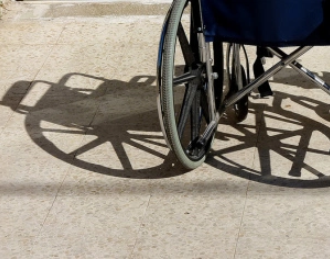Cured… of prayer
26-06-2018 - Posted by Andre PietOn the Dutch website CIP, Matthijs Vlaardingerbroek (MV), a Dutch christian speaker, tries to answer the question why so few people benefit from the so called ‘prayer healing’.
God still intervenes supernaturally in the lives of people, who find in this miraculous way liberation, healing and recovery. However, not everybody heals. It would be more honest to say that just a very small percentage of christian (and not-christian) patients are cured.
That seems to me as an honest determination. There are more than enough examples. Of course, GOD is no less capable to heal than He was in the days of the New Testament. And of course, a miraculous healing can never be excluded. But the major question is another. MV puts it like this:
Why could Jesus and his disciples cure much more people with God’s power, than we can do today?
The rare times a ‘healing by prayer’ happens, it is big news in the christian media. Apparently, the exception is rather than the rule. Especially when we realize that many claimed cures can’t pass the test of a fact check.
By the way, doesn’t MV gloss over, with the above-mentioned quote, the real contrast between then and now? The matter is not only that in those days more people were cured than today. Like there would be only a big gradual difference. The difference is fundamental. The apostles cured everyone they wanted. Nowadays miraculous healings take place rarely, or never. In the days of the New Testament there were no failures (Matthew 8: 16; Acts 5: 15). Everyone who got laid the hands on, were cured. The promise of healing was realized. Absolute and everywhere.
Undoubtedly, MV searches in the right direction, when he notices:
One of the things that struck me until now, is the role the seasons play in the bible stories. There are times that only the shadow of Peter cures people, and there are times that this doesn’t seem to happen anymore. There are times that a sweatband of Paul cures, later we read that Paul writes to Timothy that he should drink a bit of wine for his abdominal pain.
It’s a pity that MV doesn’t work out this detail further. For indeed, GOD works in seasons. In the time of Acts the apostles cured everyone they wanted. But after that time Paul had to recommend Timothy to use wine as a medicine. Or he leaves Trofimus behind when he is ill (2 Timothy 4: 20). The time of the Acts was the season in which Israel would be converted. To this the preaching was focused. Not only by making them hear, but also by showing them the signs (Acts 28: 27). But áfter Acts 28 that season is over and only ‘hearing’ remains. (Acts 28: 28).
Anyone who understands the phenomenon of ‘seasons’, understands why the Act-time is full of miracles, and why it’s, afterwards, as good as done. Once that insight has come to light, doesn’t have to imitate the time of Acts, in a frenetic roleplay. Such roleplays only leads to frustrations. And to solutions of embarrassment:
It’s because of unconfessed sins, or a curse in the offspring, not enough faith, a lack of dedication, a sinful way of life and so on. Although you may be able to make a theological point for all of these things, we take the risk of further damaging vulnerable people with these arguments.
What touches me is that we, unaware, often put the responsibility and blame on the sick and the vulnerable christian. Maybe, without saying it out loud, we say to them: It’s not only very sad and bad for you that you’re ill. We also submit the reason that God doesn’t heal you, to you (…).
Rightly, MV is deeply disappointed in promising healing-gatherings. He proposes a smaller and humbler approach:
I wonder why we shouldn’t stick with what James writes about praying for cure. That you ask your Elders to come, to anoint you with oil and pray for healing with you.
But here MV forgets the season-principle, that he mentioned before. And, he overlooks the addressing of James’ letter. James doesn’t write to a random christian community, but to “the twelve tribes in the dispersion“ (1: 1). The “elders of the ecclesia” (5: 14) belong to the synagogue, as we literally read in 2: 2. And there anointing with oil is common (Mark 6: 13). The James-letter, as well as the letters of Peter and John, are entirely dedicated to Israel (Galatians 2: 7-9)
Besides, What does MV do with the promise in James 5: 15: “and the faithful prayer will save the faltering…”? MV writes:
If nothing happens, there is the pastoral care. Hopefully with these words: “We don’t understand why God doesn’t cure you. We don’t have an answer to your suffering. But we cry with you.
Is that helpful… ?!? First sick and subsequently sicker in the absence of the promised cure. With the cold comfort of pastoral caretakers who cry with you. So, people are not cured by prayer, but cured of prayer! Isn’t it too sad for words?!
If you leave what is addressed to Israel there where it belongs, you will receive a real answer to the burning question of MV. Sort the Scriptures to the keys the Scriptures give themselves (Galatians 2: 7- 9). And so, differentiate also the seasons, and don’t transfer the time of Acts to present day, one-on-one. When we ignore that, we can deploy pastoral care how we want, but that remains useless and sad.

 English Blog
English Blog